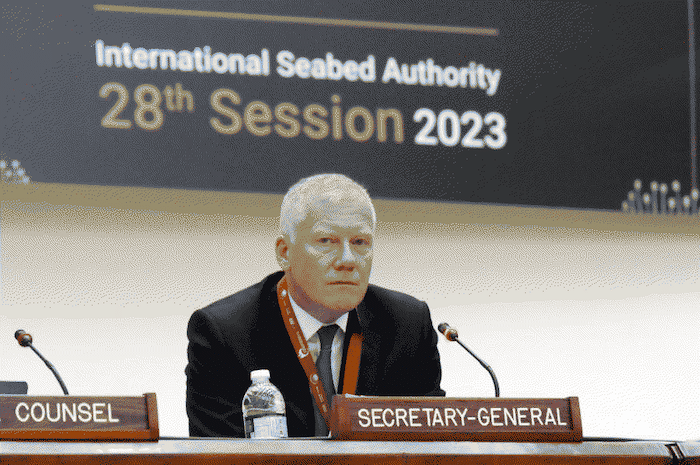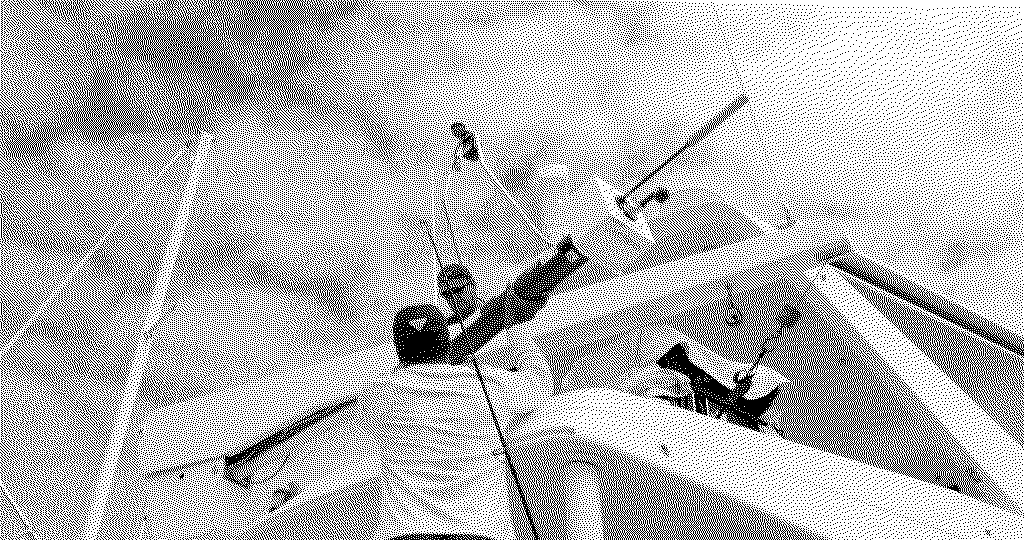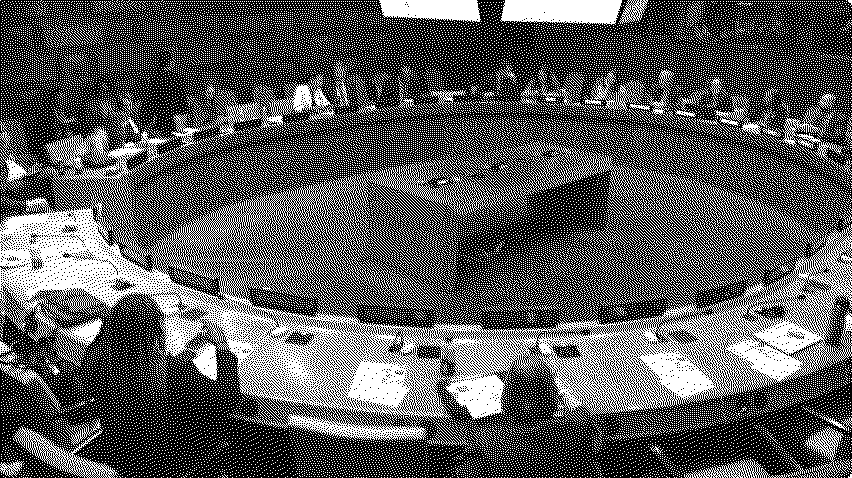The Council of the International Seabed Authority resumes its 28th session

Michael Lodge, ISA Secretary-General | Photo by IISD/ENB | Diego Noguera
- Oct. 30-Nov. 8, 2023
- Kingston, Jamaica
*** WEEK 1***
National and observer delegations participating in the third part of the 28th session of the Council of the International Seabed Authority (ISA) gathered in Kingston, Jamaica, earlier this week to resume the development of the Draft Regulations for the exploitation of mineral resources in the Area. While the July meeting (see our previous coverage of the event) saw the adoption of important decisions and statements following the ‘expiration date’ of the 2-year rule triggered in 2021 by Nauru, most participants expected this November meeting to be a quiet one, where delegations would focus on the continuation of the negotiation of the Draft Regulations’ text. Yet, the earth itself decided to ‘shake things up’. In fact, shortly after the UK announced its support for a moratorium on granting exploitation licenses for deep-sea mining activities until there is sufficient scientific evidence to assess the impacts of these activities on the marine environment, an earthquake (5.4 – moderate – on the Richter scale) was strongly felt in the Jamaican capital, shaking buildings and triggering the evacuation of the Jamaica Conference Center, where the negotiations are held. The meeting was therefore suspended to allow for safety assessment into the building’s structure to be undertaken. Many delegations felt unsafe following the way with which the ISA Secretariat handled the safety assessment of the premise and communicated the information to participants, which led some delegations to leave Kingston and return to their home countries.
Despite comments made by some delegations that they would ask the meeting to be cancelled in light of the events and the absence of many participants, the Council decided to continue its work on Tuesday, having received reassurance on the safety of the building from the ISA’s Secretary General and the Jamaican Authorities. Delegations first discussed matters related to implementation, compliance and enforcement. More specifically, the Council negotiated provisions on the establishment of a Compliance Committee (formed by either members named by the Council or by members of the Legal and Technical Commission, or a hybrid of both as per Germany’s new proposal), mechanisms for inspection (including the role of inspectors), as well as other monitoring-related provisions.
Wednesday and Thursday were dedicated to the working group on the protection and preservation of the marine environment. The Council first focused on provisions addressing the control of pollution and the management of waste; the compliance with environmental management and monitoring plans and performance assessments; the environmental compensation fund; and closure plans. Discussions were also held on different Annexes to the Draft Regulations, including on Environmental Impact Statements, on Scoping Reports, on Environmental Management and Monitoring Plans, on Closure Plans, on the Design Criteria for Impact Reference Zones and Preservation Reference Zones, as well as on the Schedule which contains the definition of important terms used throughout the Draft Regulations. Considering the high level of technical and complex details found in those Annexes (and in the Draft Regulations themselves), delegates also discussed the possibility of moving some provisions to different Standards & Guidelines (most of them still under development) that will aim to complement the Draft Regulations. The working group concluded its work with a discussion on the general obligations and principles related to the protection of the marine environment, the regional environmental management plans and their link with the Draft Regulations, as well as environmental management systems and monitoring.
For the remainder of the session, which is planned to last until Wednesday 8 November, delegates will discuss financial terms of contracts (including the question of the economic valuation of ecosystem services and natural capital of the Area), institutional matters (including the complex and highly debated notion of effective control of sponsoring States over private entities) as well as the remainder of the Draft Regulations’ text under the president’s guidance. A discussion on the operationalization of the Entreprise, the entity meant to act as the contractor of the ISA, is also planned to be held on the last day of the negotiations.
*** WEEK 2 ***
The Council of the International Seabed Authority ends the third part of its 28th session in a state of uncertainty
On Wednesday 8 November, the Council of the International Seabed Authority (ISA) ended its work for the 28th session after 8 days of negotiations. Following discussions on implementation, compliance and enforcement, and on the protection and preservation of the marine environment (see our previous coverage of the event published on our website and social media), the Council embarked on the highly technical topic of financial terms of a contract, where delegates exchanged on several contractual considerations. Although the Chair of the open-ended working group welcomed the progress achieved, more textual proposals are to be expected in the next version of the revised text, and work will continue being conducted intersessionally on the transfer of rights and equalization measures. Many delegates suggested that the report on the value of ecosystem services and natural capital in the Area, published earlier this year, as well as the recent guidance document on the economic valuation of ecosystem services and natural capital of the Area be discussed further at the first part of the 29th session in March 2024.
One day was then dedicated to the informal working group on institutional matters. Among the issues discussed in this working group, delegates focused on confidential information and documents to be submitted, provisions for dispute resolution (which included discussions on the creation of an administrative review system, on top of the dispute resolution mechanisms set under Part XV of UNCLOS), and processes for the review of the Regulations.
The last day of the meeting was first dedicated to the reading of the President’s text (i.e. all provisions not addressed by the working groups), during which the Council discussed different annexes of the Regulations (the Application for approval of a Plan of Work to obtain an exploitation contract; the Mining Workplan; the Financing Plan; the Emergency Response and Contingency Plan; the Health and Safety Plan and Maritime Security Plan; as well as standard Clauses for Exploitation Contracts) as well as the Schedule, which contains a series of important terms used throughout the Regulations.
Delegates then moved on to various matters, including first the operationalization of the Economic Planning Commission, a topic which, according to many participants, should remain on the official programme of work for the next session. A discussion then took place on the Council’s decision relating to the reports of the Chair of the Legal and Technical Commission (LTC), which highlighted the need for increased transparency in the LTC. Many non-State observer delegations however expressed their concern regarding the lack of discussion on the silence procedure, which is often used by the LTC and which, according to them, undermines transparency.
Finally, the Council discussed the way forward. Most delegations welcomed the preparation of a consolidated text, which would allow to see the Regulations as a whole to identify cross-sectoral issues and potential contradictions. However, views were divided on the method of work that should be used for the next meeting of the Council. While many delegations supported continuing the discussion under the actual format, as a lot of work still needs to be done by each working group, other suggested that the consolidated text should be discussed under the guidance of one person, with the possibility of creating ‘informal informals’. Many member States and observer delegations raised concerns regarding the latter option: moving away from the working groups could risk rushing the negotiations, and the format chosen should ensure transparency and the participation of observers, which is not always the case with ‘informal informals’. Many smaller delegations, who are often formed by only 1 or 2 delegates, might also not have sufficient human resources to take part in ‘informal informals’ if those are hosted in parallel. Yet, no agreement was reached when the President closed the meeting; the modalities for future work that the Council will employ in March are therefore uncertain, and it remains to be seen whether this will be decided intersessionnally or at the outset of the 29th session.
The first part of the 29th session of the ISA is planned on 18-29 March 2024.




